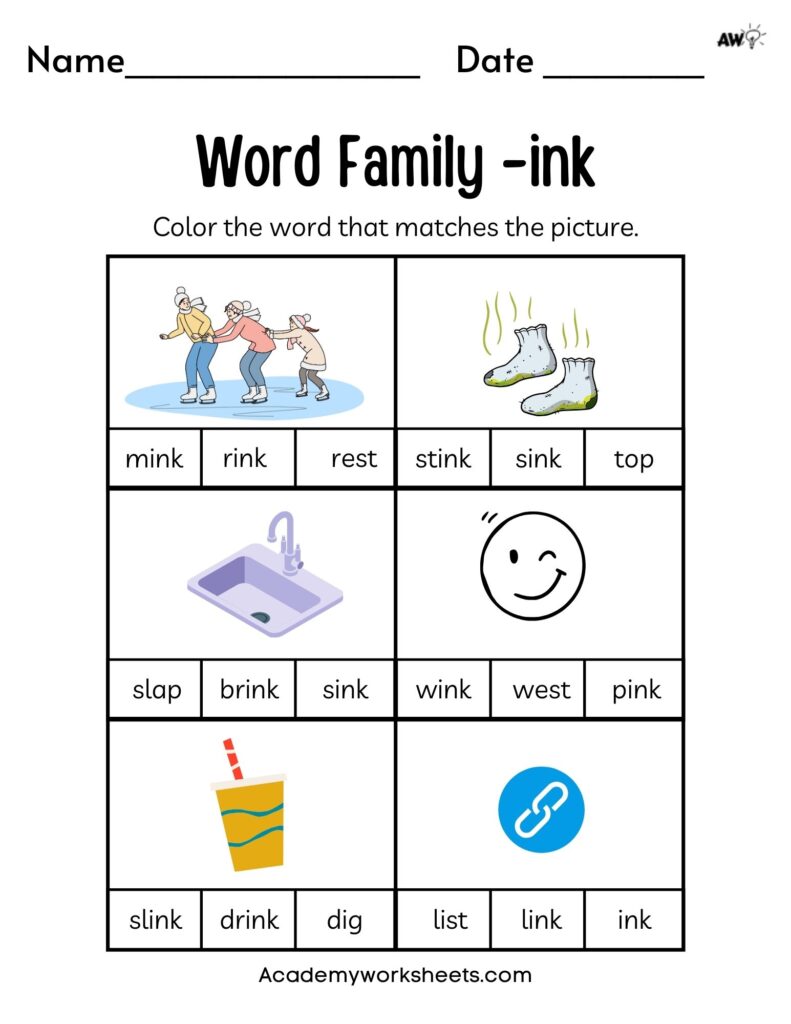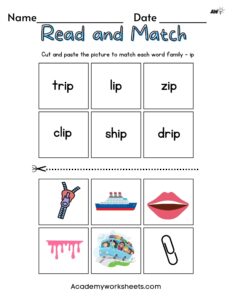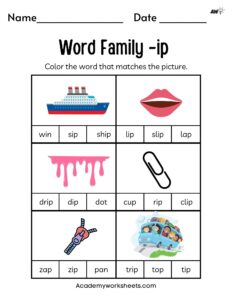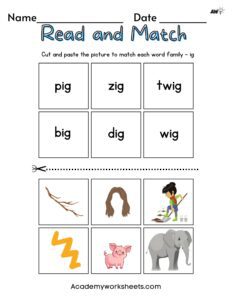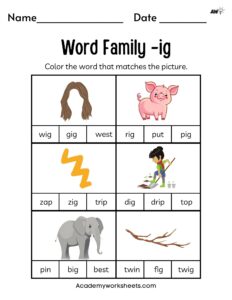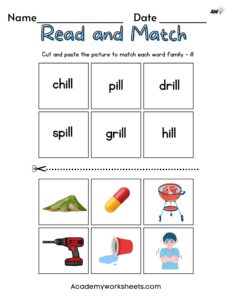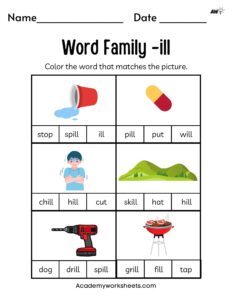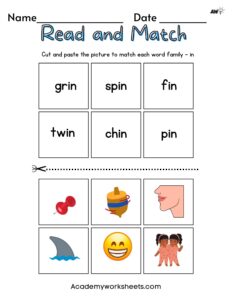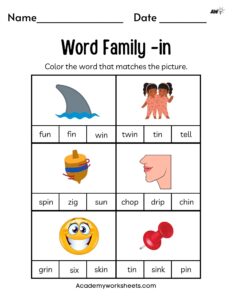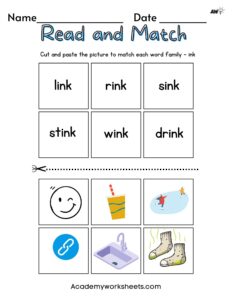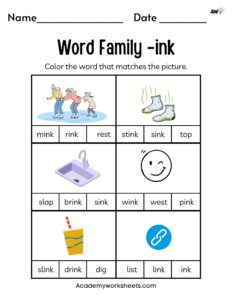Free Word Family Worksheets – Short i
Learning the short i vowel sounds is important for students because it is a crucial phonetic sound in the English language. Mastering the short i sound helps students improve their pronunciation and enhances their overall language skills. By learning the short i sound, students will be able to accurately read and pronounce a wide range of words. This will aid in their reading and comprehension abilities, as well as their communication skills. Additionally, mastering the short i sound will help students become more confident in their language skills, which will benefit them in various aspects of their academic and professional lives.
According to researchers Wylie and Durrel, there are 37 common word families: ack, ain, ake, ale, all, ame, an, ank, ap, ash, at, ate, aw, ay, eat, ell, est, ice, ick, ide, ight, ill, in, ine, ing, ink, ip, it, ock, oke, op, ore, ot, uck ,ug, ump, unk.
There are also extended word families, including less common word families such as; ap, ag, ab.
Learning Short I Word Families
The short i sound is one of the most common vowel sounds in English. It is the sound you hear in words big, sit, and lit. Young readers and spellers can benefit from learning short I word families – groups of words that share the same spelling pattern and short i sound. Here are some useful tips for teaching and learning short i word families:
Introduce the Short i Sound
Start by helping students recognize the short i sound. Say simple short a words like bit, pit, and kit and have students repeat the words, listening for the vowel sound. You can use pictures or flashcards of short a words to make the connection between the letter i and the /i/ sound it makes in these words.
Teach Rhyming
Rhyming is key to learning word families. Explain that rhyming words end with the same sounds, and give examples of short i rhymes: fill/will, and pill/mill. Say rhymes aloud and allow students to come up with their own short i rhymes as well. Rhyming games make great short i word family activities.
Make Word Chains
Connecting words in a word family helps cement the spelling patterns. Have students make -ip or in word chains aloud, going around the room saying tip, clip, lip, nip.. until they can’t think of any more. This can be done as a written exercise too. Seeing and saying chains of words in a family will reinforce the relationships.
Practice Spelling and Reading Words
Provide opportunities to spell and read short i word family words. Dictate words for students to spell, or have them select the correctly spelled word in a multiple choice exercise. Make short i word wheels for spinning, flashcards for reading, or word searches to find hidden short i words. The more exposure through games and activities, the better the mastery.
By introducing the short i vowel sound, practicing rhyming, connecting words through word families, and providing interactive spelling and reading practice, you can help students gain confidence with this common early reading and spelling pattern. Mastering short i word families provides a strong foundation for future literacy success.
To see all of the word family worksheets for the short i sound click on the read more button below.

